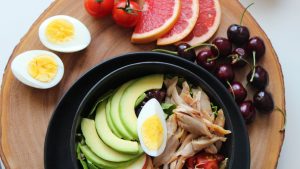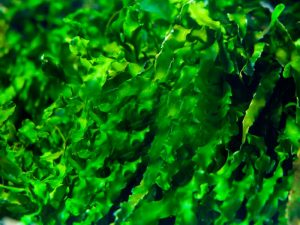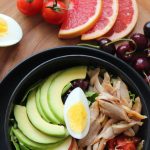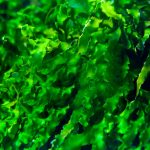Chia seeds come from the salvia hispanica plant that is native to Central America. In the past, Mayans and Aztecs used them as part of their diet, but with colonization, this ingredient started to disappear as food. Now, however, people are recognizing that these seeds are an excellent nutrition source.
Chia seeds are regarded as a superfood because they are an excellent source of protein, calcium, antioxidants, fiber and omega-3. Chia seeds have five times the amount of calcium provided by whole milk, and help the absorption of calcium into the bones. They have twice the protein of any other seed and three times more antioxidants than blueberries. Being a source of protein, they can provide all essential amino acids, are a source of soluble fiber and are easy to digest.
They can be stored for up to four years without deteriorating or loss of flavor, odor or nutritional value; thanks to their high antioxidant content these seeds will remain fresh and edible. Chia seeds help reduce cravings and help patients with diabetes by turning carbohydrates into simple sugars and controlling blood sugar levels.
A versatile and affordable food, chia seeds enhance many recipes. They also complement animals’ diet and reduce saturated fatty acids, making animal meat healthier for human consumption.
Chia Seeds Benefits
- They provide hydration to the body.
- They taste nice and do not alter the taste of other foods.
- They control cravings.
- They are an excellent source of omega-3.
- Their antioxidants help against aging.
- They help to promote muscle mass.
- They are a great source of energy.
- They help with weight loss.
- They help to reduce joint pain.
- They are depurative (purifying).
- They contain high levels of nutrients beneficial for bones.
- They may help people with diabetes.
In a study published by the American Diabetes Association in 2007, a test was conducted on 20 people with type 2 diabetes. A sample of the study population received 37 grams of chia seeds for 12 weeks, resulting in lower blood pressure and lowering of other risk factors.
Chia Seeds Nutrition
Twenty-eight grams of chia seeds can contain about 11 grams of fiber, four grams of protein and nine grams of fat. Chia seeds provide 18 per cent of the recommended daily allowance (RDA) of calcium, 30 per cent manganese, 30 per cent magnesium and 27 per cent phosphorus. They also contain vitamins B3, B1, B2, and potassium and zinc. One serving of chia seeds has about 137 calories, which makes it one of the best sources of nutrients per calorie.
The nutritional 100 grams of chia seeds is:
- Calories: 486
- Total fat; 31 grams
- Saturated fatty acids; 3.3 grams
- Polyunsaturated fatty acids; 24 grams
- Trans fatty acids; 0.1 grams
- Sodium; 16 milligrams
- Potassium; 407 milligrams
- Carbohydrates; 42 grams
- Food fiber; 34 grams
- Proteins; 17 grams
- Vitamin A; 54 international units
- Vitamin C; 1.6 milligrams
- Calcium; 631 milligrams
- Iron; 7.7 milligrams
- Magnesium; 335 milligrams
Protein promotes many health benefits and chia seeds are a great source. Fourteen per cent of their weight is made up of high-quality protein and essential amino acids. A high protein consumption helps to reduce appetite by as much as 60 per cent nocturnal cravings by 50 per cent. Chia seeds also promote good heart health.
Losing Weight with Chia Seeds
Due to its high fiber and protein content, many health technicians believe chia seeds can help with weight loss. The fiber absorbs water, and when it is in the stomach it expands, decreasing the assimilation of food and increasing the feeling of satiety. Eating chia seeds can accelerate the metabolism that leads to burning of fat in the abdomen.
According to a study conducted at Ohio State University, chia seeds can help fight anxiety. To get a good effect and lose weight the recommended daily intake is 25 grams of chia seeds combined with two liters of water for at least one month.
Add Chia Seeds to Your Diet
Chia seeds are very soft and pleasant-tasting. It is recommended to eat them naturally and not by way of supplements because more nutrients can be absorbed. Chia seeds are easy to digest.
The most common way to eat chia seeds is to mix them with water or juice, or in a smoothie or liquid food. They can be added to salads, desserts and, basically, anything you want. Chia seeds are an ingredient in bakery products too, since they increase protein content, lipids and dietary fiber of the final product.
Side effects
All excess consumption tends to be bad and eating chia seeds is no exception. Do not exceed the daily recommended amount because their high fiber content can produce gas, bloating and diarrhea. If you are taking medication, consult a doctor before eating chia seeds.
If you decide to add this nutritious seed to your diet, start progressively and in small quantities. Take a lot of water so that your body can adapt to the increase in fiber intake. Depending on your overall health, consult a doctor about chia seeds and how they can help you to improve your health.











